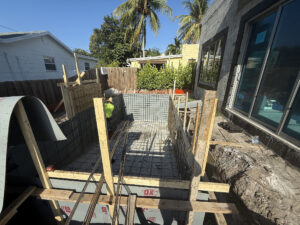Swimming offers a refreshing escape from the summer heat and serves as an excellent form of exercise. For pregnant women, who may find physical activity increasingly challenging due to added weight and changing body shape, swimming emerges as a gentle yet effective way to maintain fitness. The buoyancy of water provides much-needed relief, making it an ideal choice for staying active during pregnancy.
However, when it comes to swimming in public or private pools, questions about water safety and sanitation arise, especially concerning the use of chlorine and other chemical products for pool maintenance. Pregnant women, in particular, may have concerns about the effects of swimming in a chlorinated pool or one that has recently received a pool acid wash service.
Why is swimming beneficial for a pregnant woman?
Do the water cleansing disinfectant by-products used in pool phosphate treatment cause any direct harm to the unborn child and pregnant mother?
A study conducted in 2010 recorded there were no negative birth outcomes with the swimming pool that had been regularly cleaned with bacteria-removing chemicals. Swimming is greatly beneficial for the pregnant mother in all the trimesters. Let us see how swimming benefits pregnancy:
1. Rejuvenates and recharges a tired and exhausted mother with an unborn child
2. Alleviates nausea in the first trimester
3. Reduces round ligament pain
4. Reduces strain on the body as a result of the increasing weight and fast-growing belly
5. Reducing discomfort and inflammation in the ankles and feet is commonly seen in the third trimester of pregnancy
As the pregnancy progresses further, it becomes tough to exercise and move about. However, swimming provides exceptional relaxation and adequate exercise in the waters, especially during the third trimester, as long as the mother is not dilated.
Can a pregnant woman swim in a chlorine pool?
Lakes and oceans are the storehouse of microorganisms and are declared as non-purified water bodies. Your gynecologist may ask you to stay away from these non-chlorinated water bodies for the first trimester to prevent infections and illnesses. Try to stick to chlorinated pools that have undergone pool stain removal treatment for hygiene purposes so that the water is free of microbes and dangerous bacteria.
It is not practical to clean the lakes and oceans with bacteria regulation chemicals, so it is unsafe to take a swim here because the “freely existing” microbes can travel into the mother’s body and infect the fetus.
The American College of Obstetricians and Gynecologists accepts Swimming as a safe and recommended activity that is declared safe in all trimesters of the pregnancy period. It is very difficult to participate in sports activities with a growing belly, but water provides extra buoyancy and makes it comfortable for a pregnant woman to continue indulging in this sport. According to the authorities, swimming is beneficial for fitness, improved respiratory function, and overall health and well-being.
With progressing pregnancy, knee pain is common. The pain is aggravated by the increasing belly and compulsory activities like stair climbing, squatting, sitting up and standing. Sitting in one place is an impractical solution, and exercise is a must for a healthy pregnancy. If you have a clean and well-maintained pool with regular pool service in Jupiter, FL, swimming is a great idea. Many pregnant women indulge in swimming because it is an enjoyable and entertaining way of getting adequate exercise during the nine months of “being with child.”
Swimming in Controlled temperature in a chlorinated pool:
Swimming pools normally maintain a reasonable temperature and tend to be hygienic and clean, with no chance of unpredictable currents, weeds, or unexpected strong waves. Unlike a dip in the open waters, they are a safer bet and good exercise for a pregnant woman.
Therefore, a pregnant woman can cool off, get her special exercise, and relax by taking a swim in a chlorine pool.
The water buoyancy gives her a chance to relieve the strain caused by the added pregnancy weight, making her feel light and rejuvenated. This does not mean that she should ignore the call of her body as she swims. Over-exhaustion and fatigue do call out. A pregnant lady should stay hydrated, take breaks, and enjoy reasonably warm water for a relaxing time.
Taking Precautions for Safe Swimming During Pregnancy
When it comes to swimming during pregnancy, being cautious about chlorine exposure and the potential risks of pool chemicals is understandable. Many parents worry about the impact these substances could have on fetal health, including the possibility of congenital disabilities. However, experts assure that swimming can be safe for pregnant women when chlorine levels in the pool are properly balanced and exposure is not prolonged.
While chlorine is generally harmless and effectively sanitizes pool water, excessively chlorinated pools can cause skin and eye irritation. Additionally, the strong smell of chlorine might be bothersome for some pregnant women, potentially leading to respiratory discomfort. If you’re concerned about the chemical levels in a pool, consider having them tested before taking a dip.
It’s essential to exercise caution while enjoying pool time. Instead of diving or jumping in, gently ease yourself into the water. This approach not only prioritizes your safety but also ensures the well-being of your growing baby. Use swimming as an opportunity to relax, rejuvenate, and gently activate your muscles, all while enjoying the weightless sensation that water provides.



